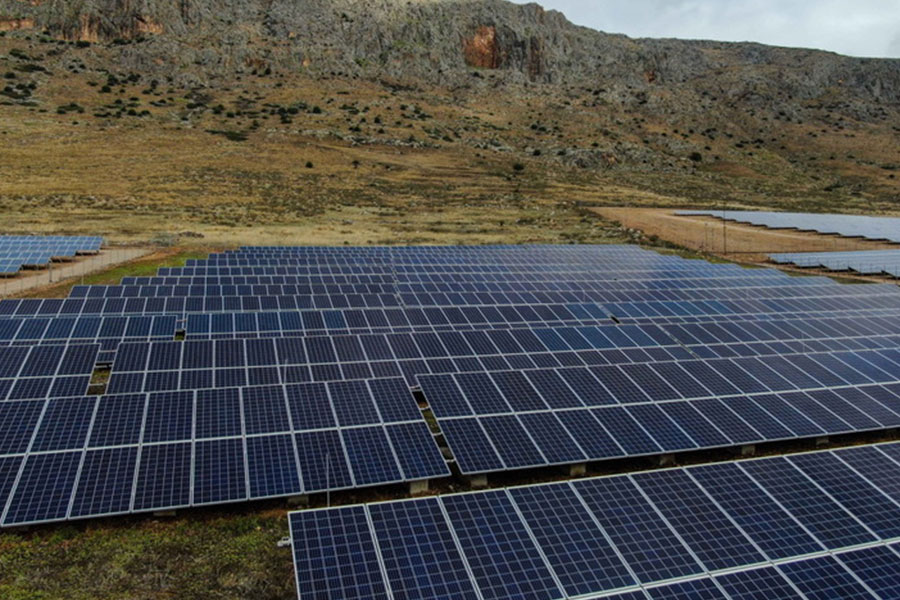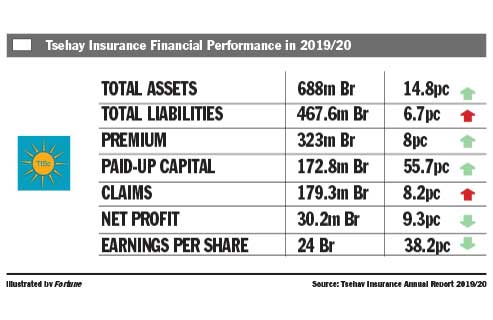
Exclusive Interviews | Jan 24,2023
Jul 27 , 2019
By Tibebu Bekele
Whether spoken in London, Washington DC or Addis Abeba, the speeches of populist nationalists have the same theme. It starts with a bleak and depressing account of the current state of affairs, a kind of victimhood Olympics is expressed, and concludes with how everything is just hopelessly screwed up. After working the audience into boiling rage, out comes the list of enemies responsible for this carnage. Now, just before the frenzied gathering goes out of control and to bring the temperature down, a nostalgic remembrance of the good old days when life used to be great commences.
A glorious and a heroic past is trumpeted with poetic flourish, and what this special group of people gifted to the world is spoken of with deep relish. Then the need to bring those glorious days back is preached. Of course, the only person or party endowed to make that happen, the Moses that deliver the people to the promised land is the speaker. With a call to action, with jeering the supposed enemy and roaming the streets, the meeting disbands.
An enraged and emotionally charged mob is discharged into the community, a group given to drama and theatrics and without intellectual discourse rampage the roads and alleyways to commit crimes against peaceful citizens.
The problem with these speeches is the fact that they are usually totally disconnected from reality. Most of the claims are demonstrably false. Let’s start from the fact that there is hardly any group, in totality, that is singularly disadvantaged or worse off than any time in the past.
The advancement in human knowledge and technology has made life in this century much better than previous times. The number of people living in extreme poverty has been cut in half in the last twenty years. Infant mortality has come down to 4 million from 8 million in 1990. Legal slavery is a thing of the past, and human life expectancy is 20 years longer since 1960.
There may be exceptions, but for the most part the reality is that most groups in the world are doing much better than their ancestors. Not less.
It is also good to remember when these false prophets try to picture a bygone era as the golden age for certain groups of people, it may not have been so for others. When white nationalists harp on about the good old days of American greatness, for example, they forget that was the time before the civil rights movement. Life was not that great for Black Americans. When British nationalists talk nostalgically about empire, they forget the sufferings of people under their colonies.
When Ethiopian nationalists hark on about past civilizations, they are not thinking about the fact that slavery was practiced in this country until the 1930s. The point is what is preached by politicians as some idealist time in the past is most likely fictional. And even if it was great to a certain group, it sure was not for others. For both reasons, there is no going back. Fighting to recreate the past is not smart.
The human progress we are enjoying now is a result of the collective wisdom of the species. It is built block by block and passed from one generation to the other, one people to the other. This progress took a leap especially after the enlightenment, which brought the belief that science and reason will advance human life. Globalisation and the international order are the natural extensions of this evolution in human governance. The brotherhood of man, labour mobility and the universality of human rights are just as impressive achievements of the human mind as landing on the moon. They have given mankind the longest time without a world war. Despite what is broadcast on the daily breaking news, there is more peace in the world today than at any time before.
The next time that a populist-nationalist prophet of doom makes a fiery speech, a reasonable person should challenge the facts that are spoken. When they proclaim themselves as the Moses that wants to take us back to the glory days of the past, we should ask which past they are talking about. The days of segregation, colonization or slavery?
PUBLISHED ON
Jul 27,2019 [ VOL
20 , NO
1004]


Exclusive Interviews | Jan 24,2023

Sunday with Eden | Aug 16,2020

Fortune News | Oct 08,2022

Fortune News | Feb 13,2021

Fortune News | May 04,2024

View From Arada | May 03,2024

My Opinion | Jun 13,2020

My Opinion | Feb 18,2023

Radar | Dec 17,2022

My Opinion | Dec 14,2019

My Opinion | 131970 Views | Aug 14,2021

My Opinion | 128359 Views | Aug 21,2021

My Opinion | 126297 Views | Sep 10,2021

My Opinion | 123913 Views | Aug 07,2021

Dec 22 , 2024 . By TIZITA SHEWAFERAW
Charged with transforming colossal state-owned enterprises into modern and competitiv...

Aug 18 , 2024 . By AKSAH ITALO
Although predictable Yonas Zerihun's job in the ride-hailing service is not immune to...

Jul 28 , 2024 . By TIZITA SHEWAFERAW
Unhabitual, perhaps too many, Samuel Gebreyohannes, 38, used to occasionally enjoy a couple of beers at breakfast. However, he recently swit...

Jul 13 , 2024 . By AKSAH ITALO
Investors who rely on tractors, trucks, and field vehicles for commuting, transporting commodities, and f...

Jul 5 , 2025
Six years ago, Ethiopia was the darling of international liberal commentators. A year...

Jun 28 , 2025
Meseret Damtie, the assertive auditor general, has never been shy about naming names...

Jun 21 , 2025
A well-worn adage says, “Budget is not destiny, but it is direction.” Examining t...

Jun 14 , 2025
Yet again, the Horn of Africa is bracing for trouble. A region already frayed by wars...

Jul 6 , 2025 . By BEZAWIT HULUAGER
The federal legislature gave Prime Minister Abiy Ahmed (PhD) what he wanted: a 1.9 tr...

Jul 6 , 2025 . By YITBAREK GETACHEW
In a city rising skyward at breakneck speed, a reckoning has arrived. Authorities in...

Jul 6 , 2025 . By NAHOM AYELE
A landmark directive from the Ministry of Finance signals a paradigm shift in the cou...

Jul 6 , 2025 . By NAHOM AYELE
Awash Bank has announced plans to establish a dedicated investment banking subsidiary...